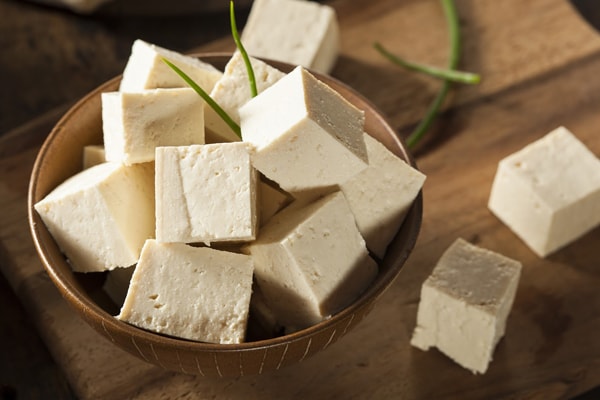The truth about eating tofu affecting men's fertility
Most men are "informed" that eating tofu will reduce sperm count and affect reproductive quality.
The idea that tofu and soy products affect male fertility is not new. However, to date, this is still a controversial topic and there is little consensus from many studies.
Initially, studies in mice showed that male mice consuming high amounts of isoflavones (compounds) had a higher risk of reproductive disorders.
On humans, the most well-known study on the “harmful effects” of soy on male reproductive health is by Dr. Jorge Chavarro and his colleagues at the Harvard School of Public Health in Boston, Massachusetts, USA.
The research team conducted an experiment with 100 couples, asking the husbands to provide their weight, height, semen samples and complete a questionnaire about 15 types of soy-based foods such as miso soup, tofu, soy milk... in the previous 3 months.
To date, there is no evidence that soy and soy products affect male fertility. |
Results showed that men who consumed half a serving of soy-based foods each day had an average of 65 million sperm per ml of semen, while normal men had 80-120 million.
However, this expert added that men in East Asia such as Japan, Korea... consume more soybeans than the test participants but still did not detect abnormalities in sperm count or reproductive quality.
Dr. Jorge Chavarro admitted that the link between soy and sperm count in his study could be because most of the participants were overweight or obese (72%) which causes the body to produce more estrogen than normal.
The UK's National Health System also stressed that this was only a cross-sectional study, meaning it could not establish a causal link between sperm quality and diet.
This study could not determine cause and effect, that is, it could not determine whether soy intake actually affected sperm quality.
Additionally, Dr. Jorge Chavarro's study relied solely on retrospective data to determine food intake through participant responses without a tool to accurately assess actual soy product intake.
Research by Dr. Mark Messina from Loma Linda University, who is also the Director of the American Soy Nutrition Institute, also published the results of an analysis of a group of men aged 18-35, showing that soybeans and products containing isoflavones do not change testosterone levels in men or affect sperm count.
In Japan, people here use a lot of soy products from a young age, but research results show that the sperm count of Japanese men is still as high as that of men in Northern Europe and testosterone levels are as high as those of American men.
So far, there is no clear evidence of a link between soy and male fertility. Instead of limiting the intake of tofu and soy products, to maintain reproductive health, men should pay attention to more direct factors such as smoking, drinking alcohol, and lack of exercise.
Soybeans and soy products contain a lot of protein, vitamin D, which is easy to digest and is a healthy food. Not only that, soy products also help reduce the risk of cardiovascular disease, high blood pressure as well as reduce the risk of breast cancer in women and prostate cancer in men.







